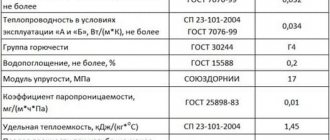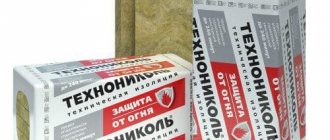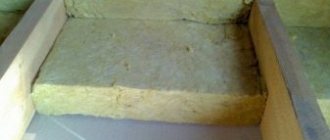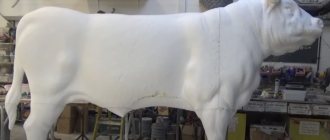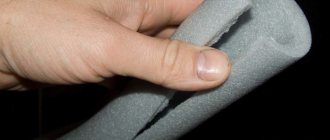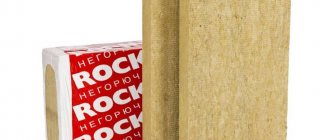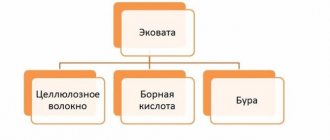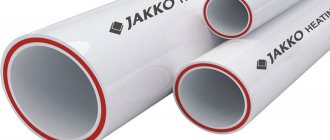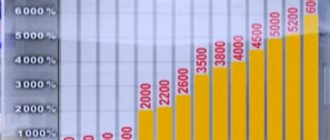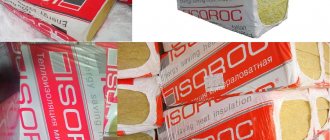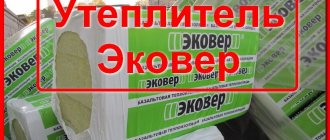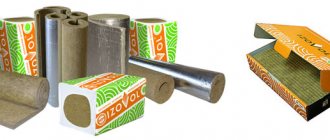There is probably no person in Russia who has come into close contact with construction and repair work who does not know products under the TechnoNIKOL brand. And this is not surprising. In the building materials market, the company offers the buyer heat and waterproof materials, vapor barrier films and membranes, foams, adhesives, sealants, fire retardants, roofing, etc.
There is a particularly large selection of insulation materials made from different raw materials using different technologies. There are several dozen types of them, for all occasions. In this diversity it is easy to get confused not only for the “home craftsman”, but also for the professional builder. The editors of the StroyGuru portal decided to take their visitors on an excursion into the world of TechnoNIKOL thermal insulation.
A little about the company
The company began its history in 1992. In less than 30 years, the company has grown into a powerful corporation producing building materials for various purposes. Today TechnoNIKOL is a leading European manufacturer of highly efficient and reliable building materials and systems. This result became possible thanks to the symbiosis of world experience with our own scientific developments.
Products are manufactured at 53 factories in 7 countries: Russia, Belarus, Great Britain, Germany, Italy, Lithuania and the Czech Republic. The production company's products are supplied to 95 countries worth about 1.5 billion US dollars per year (103.7 billion rubles in 2022).
The basis for the progressive development of the corporation:
- constant search in scientific centers for new types of materials;
- introduction of advanced technologies;
- training builders in innovative technologies for using cutting-edge materials.
All of the above also applies to the subject of our excursion - TechnoNIKOL brand insulation.
Construction mixtures: glue, primer and plaster
Dry mixtures are powders that react chemically with water and are used for a variety of construction purposes. Professional builders know that choosing the right mixture is no less important than the same finishing material.
And the mixtures of this company are valued for their high-quality modifying additives, which make their use convenient and practical:
Types of insulation
has mastered the production of 4 types of insulation from different raw materials:
- basalt (mineral wool insulation);
- extruded polystyrene foam;
- semi-rigid polyurethane foam (PPU);
- polyisocyanurate foam (PIR thermal insulation boards, better known among builders as PPU boards).
Basalt wool
Basalt insulation "TechnoNIKOL" is made from rocks of basalt or gabbro (rock wool). The production process begins with crushing the stone. After this, the rock is fed into the furnace, where at high temperatures (up to +1500oC) it melts to a fluid state. The liquid mass is fed into a centrifuge, where very fine fibers are formed with the help of a strong air flow.
The process continues by irrigating the shapeless mass, consisting of stone threads, with plasticizers: formaldehyde or arbolo-urea resin. During the cooling process, at a temperature of 200oC, the resin polymerizes, forming a thin protective layer on the fibers. The production process is completed on a conveyor belt, where the fibers are compressed to a given density and then cut to the required width and length.
Extruded polystyrene foam
Synthetic insulation material made from granulated polystyrene, obtained by foaming the raw material and then pressing it through a special mold (the technology is called extrusion), is called extruded polystyrene foam. Available in sheets with a thickness of 20 to 100 mm. Keeps warm perfectly. Lightweight yet durable.
It has a strong resemblance in appearance to polystyrene foam. Therefore, the company paints its products in orange and silver, with the addition of carbon fiber.
Semi-rigid polyurethane foam
The company’s line of thermal insulators also includes sprayed insulation “TechnoNIKOL” - one-component polyurethane foam. Available in tubes. It is sprayed using a special nozzle onto a mounting gun familiar to builders.
PPU forms a seamless, low thermal conductivity, thermal insulation layer with small, open pores. It adheres well to all types of building materials, with the exception of polyethylene.
Thermal insulation PIR
heat-insulating material made of polyol and isocyanate in the form of plates is positioned as an innovative product of a new generation. To enhance the impression of the new product, the insulation was called PIR thermal insulation. This misleads many consumers. Indeed, in reality, this is rigid polyurethane foam in the form of slabs, familiar to many builders. What PU foam sheets are is described in detail in the work “PPU Boards”.
Suggested options
The range of mastics from this manufacturer suitable for waterproofing foundations is presented:
- Ready-to-use water-based waterproofing for foundations and floors (AquaMast line). This brand is used without solvents at a consumption of up to 3.5 kg/m2 and is valued for its high elasticity, adhesion, resistance to moisture and thermal extremes.
- Cold bitumen mastic for foundations AquaMast, optimal for coating waterproofing work. The consumption of this brand per layer is about 0.7 kg/m2 for waterproofing vertical structures, 1 - horizontal and inclined.
- Bitumen-rubber mastic No. 20, consumed during waterproofing work up to 3.5 kg/m2 and after drying forms a high-strength and heat-resistant coating.
- Cold bitumen-polymer mastic MKTN, suitable for both waterproofing buried structures made of concrete and/or metal, and for gluing rolled materials or anti-corrosion treatment. Minimum consumption when carrying out waterproofing work – 2.5 kg/m2
- Water-based mastic No. 33, with latex and polymer additives, suitable for both manual and machine installation. In the second case, it is sprayed after mixing with a coagulant in a ratio of 1:8, the estimated consumption for the installation of waterproofing coatings is 3.5-3.45 kg/m2. With relatively rapid surface drying (1-4 hours), the final hardening and hardening of this material takes several days.
- Solvent-based waterproofing mastic No. 24 (MGTN), characterized by economical consumption (0.7 kg/m2 per layer when applied to vertical surfaces, no more than 1 in other cases) and low water absorption.
- Universal and ready-to-use mastic No. 21 (Tehnomast) based on an organic solvent, characterized by increased adhesion to concrete, metal and adhesive roll waterproofing at an average consumption of 3 kg/m2.
Separate groups are represented by anti-corrosion mastic and cold bitumen mastic “Repair and gluing” AquaMast.
AquaMast anti-corrosion is made on the basis of organic solvents, petroleum bitumen, polymer and complex additives and is intended to protect any metal structures buried in the ground at a consumption of 0.5 kg/m2.
Multicomponent cold mastic for repair and waterproofing has a high proportion of non-volatile substances (up to 92%) and good adhesion when gluing bitumen roll materials to concrete. The consumption of this composition depends on the work performed and the weight of the panels and varies from 0.8 to 1.8 kg/m2.
Features of insulation
Thermal insulation "TechnoNikol" is a unique product of its kind. It is distinguished from its competitors (Knauf, Izover, Rockwool, etc.) by its versatility, high quality and reasonable price.
Versatility. It is expressed in the areas of application and the materials used. Thus, the company’s products can be found in almost all areas of the national economy (in truth, it is more difficult to say where they cannot be found), but in construction there is no such structural element of the building and its type (residential buildings, garages, baths, saunas, dachas, etc.) .d.), where it is impossible to use TechnoNikol insulation.
This is evidenced by the extensive range of products. But the versatility is most clearly illustrated by the TechnoNIKOL wedge-shaped insulation, the production of which the company was one of the first.
If we talk about the raw materials used for the production of insulation, the company produces thermal insulation materials from all the most popular materials: basalt wool, polystyrene foam, polyurethane foam.
Quality. A manufacturer can find out most accurately about the quality of its products on various forums. Here the company is in complete order - it’s difficult to find a negative review (it’s still possible if you want). The high level of quality is confirmed by the awards received by the brand at various exhibitions of thermal insulation materials.
Acceptable price. The manufacturer strives to cover all market segments. Therefore, on sale you can find the same type of insulation with a budget price and a cost per 1 m2 of several thousand rubles. Such price variability is achieved by changing the density of the material.
Content
First, a little about the company itself:
In which countries does TechnoNIKOL operate? Its market is quite wide, plus you often hear about how this company enters into another contract and acquires another successful plant:
In total, TechnoNIKOL has 5 main product lines: TechnoNIKOL, TechnoNIKOL Master, TechnoNIKOL Premium, TechnoNIKOL Architect and TechnoNIKOL Special.
Each of these lines has similar products, but different purposes:
- The Technonikol line is a standard line of materials used in professional civil and industrial construction.
- TechnoNIKOL Master is a retail line for private use. It’s very easy to work with even for beginners, everything is so well thought out. Marking lines, detailed instructions and error protection - all conditions have been created so that you can cope with any task yourself.
- "TechnoNIKOL Premium" is a premium line of particularly high quality, also only for professional construction. All products in this line are durable, inexpensive and are actively used in the construction of modern buildings.
- TechnoNIKOL Architect are the favorite products of modern designers. This line provides a huge selection of repair and finishing materials with a carefully thought-out concept, with attention to every detail.
- "TechnoNIKOL Special" is designed for special types of construction, such as road, underground and those where materials with clearly defined qualities are needed. This line also includes sealants, primers, heat-insulating non-shrink boards and even marking paint.
Today we will look at the most popular and well-known products from Technonikol, which you will probably need in arranging your family nest. Let's get acquainted with quality?
Characteristics
Each type of insulation has its own technical and operational characteristics.
Basalt wool
TechnoNIKOL basalt insulation has performance indicators that are attractive to consumers:
- thermal conductivity - 0.048-0.077 W/(m K);
- density - 28-210 kg/m3. The value of the indicator depends on the purpose of the insulation. So, for inclined surfaces the most optimal density will be 35-40 kg/m3, for a facade - 80-100 kg/m3, and for a screed on the floor or on a flat roof - 150-210 kg/m3;
- vapor permeability - 0.25-0.35 mg/m2*h*Pa;
- strength:
- for compression - 8-60 kPa;
- separation of horizontal layers from each other - 80 kPa;
- bending - 0.15 MPa.
- durability - more than 50 years;
- operating temperature: from -170oC to +1000oC.
In addition, cotton wool does not burn (flammability class NG) and does not absorb moisture—hygroscopicity is completely absent (water absorption is only 0.095% after 24 hours of soaking). More details about the performance of basalt mats can be found in the work “Basalt Slab”.
Extruded polystyrene foam
A feature of extruded polystyrene foam produced at the enterprises of the TechnoNIKOL concern is the inclusion of carbon in the form of nanoparticles in the insulation composition. This significantly changed all technical parameters of the material: thermal conductivity, service life and physical and mechanical properties. Therefore, the digital values given below may differ significantly from the generally accepted ones (data taken from the official website of the company www.tn.ru):
- thermal conductivity coefficient - 0.029-0.035 W/(m K);
- density - 26-36 kg/m3;
- bending strength - 0.025-1.0 MPa;
- vapor permeability - 0.005-0.011 mg/m2*h*Pa;
- flammability class - G3-G4 (note that the company honestly indicates the flammability class);
- durability - more than 50 years.
Liquid polyurethane foam
One-component polyurethane foam has open cells, and therefore its technical characteristics differ significantly from those of two-component polyurethane foam:
- thermal conductivity coefficient - 0.025-0.045 W/(m×°K);
- vapor permeability - 0.07-0.17 mg/(m*h*Pa);
- density - 8-18 kg/m3;
- moisture absorption - 10.0-60.0%;
- compressive strength - about 1.02 kgf/cm2;
- bending strength - about 17.0 kgf/cm2.
PIR thermal insulation boards
PPU slabs have the best technical and operational indicators among all insulation products on the market. Among them:
- thermal conductivity - 0.028-0.030 W/(m×°K). The manufacturer indicates a value of 0.021 W/(m×°K), which raises reasonable doubts. The work “PUF Slabs” explains in detail why;
- density - 40-160 kg/m3;
- vapor permeability - 0.02-0.05 mg/(m*h*Pa);
- strength:
- when compressed to failure - 200 kPa or more;
- bending for fracture - not less than 300 kPa.
- water absorption when immersed in water for a day is 1-1.5%.
Innovative PIR insulation TechnoNIKOL
The mats are made of polyisocyanurate foam. The structure of the plates is hermetic cells, the external insulation is covered with a layer of foil. This solution improves thermal efficiency - the thermal conductivity coefficient is reduced to 0.021 W/m*C. An innovative polymer is used to insulate the fuel tank of rockets.
A 1.6 cm layer of PIR insulation is equivalent in thermal efficiency to a 1.34 m concrete wall.
Polyurethane is considered the toughest elastomer - a compressive strength of more than 120 kPa. The excellent characteristics of insulation make it popular when installing flat roofs. Reviews about PIR insulation are positive - the material is lightweight, easy to install, durable, and the aluminum layer increases its fire resistance.
Technonikol products are in active demand. Main advantages: wide range of choice, high quality and loyal pricing policy.
Advantages and disadvantages
Each type of TechnoNIKOL brand insulation presented on the building materials market has its own strengths and weaknesses.
Basalt wool
Among the advantages of wool made from basalt fibers:
- good thermal insulation properties;
- durability;
- resistance to heat - the material is non-flammable, can withstand temperatures up to +1000oC;
- lack of hygroscopicity;
- vapor permeability;
- good level of airborne noise absorption;
- versatility - you can insulate any structural elements of a building;
- resistance against fungus and mold;
- simple installation - all work can be completed without hiring hired workers;
- convenient delivery to the work site;
- high elasticity, which allows the slabs to be mounted in the sheathing cells in a spacer;
- environmental safety for homeowners.
Among the disadvantages :
- high cost of the product;
- heterogeneous structure of mineral insulation with low density;
- a significant difference, judging by reviews on forums, in the thermal insulation properties and durability of budget line materials and expensive ones;
- dust generated during the work process.
Important: the company was the first in the world to introduce basalt insulation, which does not generate dust.
Extruded polystyrene foam
The main advantages of extruded polystyrene foam (EPS) are low thermal conductivity and low weight. But other strengths are no less significant:
- long service life - the company assures that the EPS durability is 50 years or more;
- ability to maintain original characteristics in the temperature range from -50oC to +75oC;
- high level of water resistance - absorbs no more than 0.2% moisture when completely immersed in water;
- resistance to compression - high-density material can withstand pouring screed up to 10-15 cm thick;
- not subject to rotting and decomposition processes - a synthetic product, so it takes hundreds of years to decompose;
- is not a base for the proliferation of pathogenic microflora (mold and fungi);
- exhibits inertness towards most types of household chemicals and paint solvents;
- frost resistance - there is nothing to freeze due to the complete absence of moisture inside the EPS boards;
- easy to install - you can do the insulation work yourself;
- has good adhesion to building materials: plaster mortars, putty, paint.
disadvantages , but some of them become the main reason for refusing to use XPS in private construction:
- there is no vapor permeability - the walls do not “breathe”, and therefore good ventilation is necessary;
- background noise increases - the plates resonate, amplifying the sounds;
- high sensitivity to ultraviolet rays - under the sun it quickly ages and deteriorates;
- high cost 1 m3;
- incompatibility with rodents - they happily make nests, gnawing out numerous passages;
- flammability, which the manufacturer honestly informs about.
PIR boards
Insulation made from PIR raw materials has many advantages, which should make the material a leader in the market of thermal insulation materials for many years. Among them:
- the lowest thermal conductivity among all types of insulation;
- long service life due to the applied layer of protection made of foil or lavsan - 50-60 years;
- simple fastening to insulated surfaces - all repair and construction work can be done independently;
- environmental cleanliness;
- resistance to household chemicals and colonies of microorganisms (mold and mildew);
- low specific gravity;
- lack of hygroscopicity;
- versatility;
- wide temperature range in which the insulation retains its performance characteristics - from -200oC to +130oC;
- lack of linear expansion during sudden temperature changes;
- low fire hazard class - classified as self-extinguishing (G1);
- can be machined, which allows, if necessary, reuse;
- resistance to decomposition processes: rotting and corrosion.
The manufacturer claims good noise insulation properties and resistance against rodents. In reality, this is just a publicity stunt. Therefore, these two factors can be attributed to the disadvantages of the product. But the most important drawback is the high price. Another drawback of PPU boards is the fear of ultraviolet radiation, which the company perfectly mitigated by protecting the sheets with foil, which at the same time perfectly reflects heat rays back into the room.
Waterproofing: for private and industrial construction
So, most builders in our country are well familiar with waterproofing from TechnoNIKOL, which is presented in the following products:
Durable underlay carpets
Underlay carpets from TechnoNIKOL are also quite famous. They allow you to reliably protect the pitched roof and extend its service life up to 60 years.
We are talking about products such as Anderep Plus and Profplus:
Such underlay carpets are produced with mechanical fastening, in the form of special bitumen-free adhesive strips. To connect the carpet sheets together, simply remove the protective tape and press edge to edge with a slight overlap, right along the convenient markings. It is convenient to work with such material; there is little excess left.
The adhesive strip on TechnoNIKOL underlay carpets is quite thin, but has high adhesion and does not allow the possibility of moisture penetration. The strips are slightly offset from the edge, so there is no need to remove the protective film from the adhesive strip.
This adhesive strip allows you to avoid purchasing additional sealants or mastics, and its properties are maintained even at temperatures down to -15°C. The Plus series is the next generation, which has a protective coating made of woven black polypropylene. This makes it possible to use such a carpet as a temporary roof for six months!
Insulation films and temporary roofing
The next series of insulating materials is waterproofing and vapor barrier film. A vapor barrier is installed on the inside of the roof and protects the insulation from water vapor:
Waterproofing serves as a protective barrier for roof insulation already on the outside of the roof:
By the way, temporary roofing is often confused with roof waterproofing. In fact, it perfectly protects the newly laid insulation from bad weather, but for no more than six months - only during construction work:
A separate type of waterproofing is cut-off. It is designed to protect the roof in such difficult places as the mauerlat and those areas of the roof and walls where temporary repairs are being made:
Nicoband bitumen tape
Separate products of TechnoNIKOL are Nicoband bitumen tapes. They incredibly please both professional builders and home craftsmen with their versatility.
If earlier, in order to repair a crack in the roof, you had to drag a bucket of hot mastic upstairs and do one of the not-so-pleasant jobs, now 10-15 minutes are enough for a simple manipulation. So, the tape is cut to the required size, heated with a hairdryer if desired, and glued to the damaged area.
Then simply roll it with a roller. You can do without a hair dryer, but in this case the bitumen melts and provides better adhesion. Experienced builders quickly noticed this, and are not lazy to resort to additional measures, even if the manufacturer does not force them to do so.
What is the secret of such a tape? It contains: a durable and elastic base, modified bitumen and a coating that protects against ultraviolet rays. This tape is suitable for almost all types of surfaces:
These tapes are used to repair gutters, roofs, windows and any complex leaks on almost any roofing material. And all this even in the rain! What is their versatility?
In Russia, about five other suppliers sell similar tapes, also of good quality, but Nicoband occupies a leading position due to the fact that the company itself is trusted.
Breathable waterproofing for roofing
We will also tell you about such a new product as Uniflex-Vent waterproofing. One of the most common problems with roofs in a climate such as Russia is swelling of the roofing carpet due to the accumulation of moisture inside the entire structure.
First, microcracks appear in the roof, liquid gets into them, then it penetrates directly into the insulation and has nowhere to go from there. And the insulation, in turn, is rapidly losing its most important properties.
The inventors of TechnoNIKOL found a solution to this problem - to repair the roof so that moisture is removed from its interior on its own. These are materials from the Uniflex-Vent series. It is used to repair roofing in two layers, with the bottom layer “breathing”.
Thanks to this technology, the roof is repaired in such a way that there is no need to remove the old covering. This saves both effort and costs. The only thing you have to do is to perforate the old coating. At the same time, Uniflex-Vent is waterproof, heat-resistant and durable.
Application area
The Russian corporation supplies the building materials market with a wide range of its products, which allows it to meet any buyer’s needs. A combination of 4 types of thermal insulation "TechnoNikol" allows for insulation:
- a pitched roof from the inside (about the inappropriateness of thermal insulation of the roof from the outside with extruded polystyrene foam boards and PIR materials can be found in the article “How to insulate the roof of a private house”) and a flat roof from the outside;
- facade, in two ways:
- wet method for decorative plaster or painting;
- ventilated facade for finishing with siding, PVC panels, porcelain stoneware, block house, imitation timber, etc.
- walls using the “well method”, when the insulation is attached between the load-bearing and decorative walls;
- walls from the inside of the room, as well as the facade, using two methods;
- gender, with all possible options:
- from below, from the basement side;
- under the screed (“floating screed”);
- directly under the finishing floor covering (“floating floor”);
- by lags;
- under "warm floor".
- ceiling - underneath for painting, wallpaper, suspended and suspended ceilings and outside, in the attic.
If you depend on the type of building, the company’s product can be used for thermal insulation of a private house, apartment, cottage, garage, bathhouse and sauna.
In addition, insulation is used to insulate metal entrance doors and utility networks (pipes with cold and hot water).
TechnoNikol insulation materials have also found their application in technical insulation: agriculture (greenhouses, incubators, storage of vegetables and fruits), automotive industry (insulation of refrigerators and sound insulation of individual vehicle components), marine and railway transport (refrigerators), etc.
Manufacturer information
The history of the world famous concern TechnoNIKOL began in 1992 in Moscow. In the first decade, the industrial enterprise entered the Ukrainian market and increased the number of its production sites in Russia. Having established the production of waterproofing materials that easily outperformed their competitors thanks to innovative technical characteristics, the company took a leading position.
Having successfully survived all the times of crisis, TechnoNIKOL still does not give up its leadership, continuing to conquer the international construction market in the segment of insulation products. At the moment, the corporation has significantly expanded its field of activity, and now it owns 35 factories. Also, the company’s special merits include the opening of official representative offices in 33 countries.
Range of insulation materials and prices
The company produces insulation with dimensions and technical characteristics for specific building structures. To make it easy for the consumer to navigate the variety of products presented, each type is given its own name.
Basalt wool
The most widely represented line of basalt mats. The manufacturer offers slabs and rolls:
- "Rocklight";
- "Technoruf";
- "Technovent";
- "Technolight";
- "Technoflor";
- "Technofas";
- "Technoblock";
- "Technoroll".
"Rocklight." Lightweight basalt fiber slabs (density 35 kg/m3) for external and internal thermal insulation of horizontal and vertical structures in private homes: attic walls and frame buildings, floors, internal partitions; ceiling from the attic, pitched roofs.
Available in two sizes:
- 120x60x5 cm at a price of 170 rubles/m2;
- 120x60x10 cm costing about 250 rubles/m2.
"Technoruf". The main purpose is to insulate facades using the “wet” method under decorative plaster or painting and flat roofs under screed. For this purpose, the company produces Tekhnoruf slabs with a density of 140 kg/m3 and high delamination strength (at least 15 kPa). In addition, we have mastered the production of wedge-shaped insulation (Tekhnoruf n prof).
The length and width dimensions are standard: 120x60 cm. The thickness can be any in the range of 20-100 mm. A slab with a thickness of 120 mm can be produced upon request. The price is high, starting from 7,000 rubles/m3.
"Technovent". Specialized insulation for walls with ventilated facades. The manufacturer also allows for use as a middle layer in the “wet” method of insulation for painting and decorative plaster with a thin solution thickness. You can buy it for 2.8-3.2 thousand rubles/m3.
"Technolight". "Technolight" is another specialized type of basalt wool - insulation for pitched roofs. According to its characteristics, it can also be used for internal insulation of balcony walls along the frame, ceilings and walls from inside the apartment along the sheathing, and wooden floors along the joists - it can only be fastened by surprise.
But when used for other purposes than its intended purpose, you need to look at how much 1 m2 of this type of mat costs, because... for profile heat insulators it may be lower. The cost of 1 m3 is about 1800 rubles.
"Technoflor". Thermal insulator with high compressive strength, withstands up to 50 kPa and a density of about 170 kg/m3 is intended for insulation of floors with increased load: sports facilities, warehouses and industrial premises. Therefore, it is practically not used in private construction (it is used for insulating flat roofs of residential buildings). It is expensive - 4,960 rubles/m3 or more.
"Technofas". The entire line of this brand of basalt mats belongs to the best facade insulation materials from TechnoNIKOL. It is used for insulation of buildings made of brick and concrete with subsequent finishing with building mixtures. The price ranges from 3,300 to 5,500 rubles/m3, which is a bit expensive for the middle class.
"Technoblock". The material was created for insulating walls using the “well” method, when the insulating layer is placed between two walls: load-bearing and decorative. It has a high density, which allows it to withstand significant loads on the edge when the mats are supported on each other. But it does not always have the same compressive strength along the plane. Therefore, it is not used for horizontal insulation. The price fluctuates around 2,180-2,470 rubles/m3.
"Technoroll". The only type of basalt insulation that is sold not in sheets in packs, but in rolls. Mat length is 4,000 mm, width - 1,000 mm, standard thickness: 50 and 100 mm. Lightweight (density 30 kg/m3), and therefore its use is possible where there are no static loads on the surface of the heat insulator: when insulating floors along joists, attics and ceilings. The price is budget.
For information: At the time of writing, the company has temporarily suspended the production of rolled material. Therefore, it is not possible to indicate a more accurate price.
Extruded polystyrene foam
For private construction, according to technical indicators, the most optimal option is extruded polystyrene foam, produced under the general name “Carbon”. The following types of insulation can be found on sale:
- XPS CARBON ECO;
- XPS CARBON ECO DRAIN;
- XPS CARBON ECO FAS;
- CARBON ECO SP;
- CARBON PROF;
- CARBON PROF SLOPE;
- CARBON SOLID;
- XPS CARBON SAND;
- C-XPS CARBON.
XPS CARBON ECO. The slabs of this series are the basic ones in the Eco line. They are used in low-rise construction to insulate foundations, floors, roofs and facades. They burn well, so they are not recommended for use for insulating walls and ceilings from the inside of rooms. A pack of 8 slabs measuring 1180x580x50 mm can be purchased for 1230-1252 rubles.
XPS CARBON ECO DRAIN. They have a distinctive feature - drainage grooves, which allows the following functions to be performed when insulating the foundation and flat roof:
- drain rain and groundwater;
- organize microventilation of the roof.
1 m3 of such a slab costs from 17,590 rubles.
XPS CARBON ECO FAS. Specialized insulation for facades under plaster. Technical characteristics allow it to be used when insulating walls using the “well” method, pitched roofs, ceilings from the attic side and floors under screed. A distinctive feature is that it has excellent adhesion to mortars and all kinds of adhesives based on cement and gypsum. Price from 215 rub./m2.
CARBON ECO SP. Rigid and very durable insulation is used for thermal insulation of shallow foundations using the “insulated Swedish slab” type. It has no analogues of Russian origin. A package of 4 slabs measuring 2360x580x100 costs RUB 2,670-2,780.
CARBON PROF. CARBON PROF slabs are the basic version of insulation for multi-storey construction. The Prof line from Eco is distinguished by:
- reduced flammability class due to the addition of fire retardants;
- the presence of a special edge to speed up installation (some Eco series also have it);
- ability to withstand significant loads during operation.
The slab is used to insulate foundations, flat roofs and floors along the ground and under the screed. Insulation costs from RUB 4,090/m3.
CARBON PROF SLOPE. The original form of insulation, patented by the company, for a pitched roof. Consists of 5 wedges of different sizes. When assembled, a slope is created to remove water from wet areas of the rafter system. 1 m3 costs more than 6,000 rubles.
CARBON SOLID. EPPS CARBON SOLID is an ideal insulation material for floors. It can also be used when laying highways and railway tracks - it does not deform under loads and does not swell in a humid environment. The price starts from 6,490 rubles/m3.
XPS CARBON SAND. The slabs are produced for companies producing sandwich panels.
C-XPS CARBON. The main purpose is laying on top of a “dry” floor screed. Can be used for thermal insulation of other building structures during renovation. Cost of 1 m2 - from 865 rubles.
Mineral wool TechnoNIKOL
Although it would be more correct to say stone wool, it is this type of mineral wool insulation that is presented in the TechnoNIKOL product range. The main raw materials for obtaining fibers are crushed melts of rocks of the gabbro-basalt group, which is why the material is also called basalt wool. To achieve strength and elasticity, binders - formaldehyde resins - are added to the fibers.
Small fibers retain air inside the insulation, which ensures low thermal conductivity and, accordingly, the ability not to release heat from the room.
pros
In addition, basalt wool has a lot of advantages compared to other types of “cotton” insulation:
- Thermal conductivity - the insulation is slightly superior to glass wool, and significantly superior to slag wool;
- Fire safety – corresponds to class NG (does not burn);
- Operating temperatures – the material does not lose its properties in the range from -60 to +400 degrees. WITH.
- Moisture resistance;
- Firmness and elasticity;
- Resistance to aggressive chemical influences;
- Low content of harmful substances - according to the manufacturer's documentation, the binder content in TechnoNIKOL insulation is kept at the lowest level required by the standard - less than 2.5%.
- The dimensions of insulation based on mineral wool from this manufacturer correspond to GOST, and there is a wide range of options for the thickness of slabs or mats.
The table shows only the main types of TechnoNIKOL basalt insulation and their characteristics:
Now it remains to find out what distinctive features each individual type of insulation has, and how the manufacturer provides the varieties with a specific scope of application.
Rocklight
It is a lightweight basalt wool slab with a low content of phenolic additives. Distinctive features:
- environmental friendliness and relatively low strength;
- does not absorb moisture, retains heat well and provides sound insulation;
- universal for use in the construction of private houses - suitable for attics, frame walls, walls with light finishing (siding), flooring and partitions.
